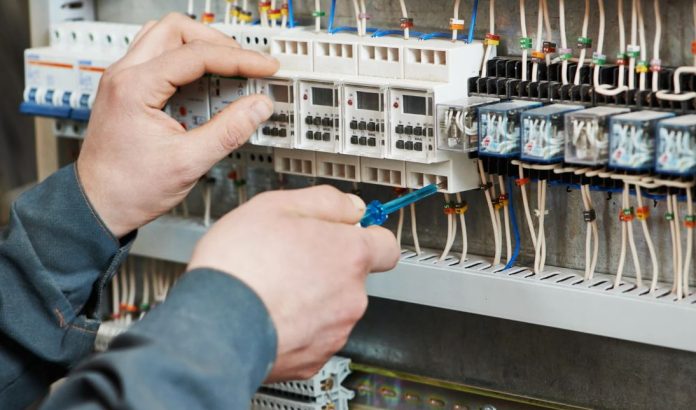When you’re searching for the right electrician in Melbourne, it’s easy to assume that all of them do the same kind of work — wiring up homes, installing lights, or fixing power points. But in reality, the field is a lot more specialised than most people think. There are different roles across residential, commercial, and industrial settings, each requiring specific training, tools, and experience.
In this article, we’ll break down the main types of electrical tradespeople and what they actually do, so you can match the right expert to the job at hand.
1. Residential Specialists
Let’s start with the type most people are familiar with — the ones who handle jobs in houses, townhouses, and apartments. These workers are trained to deal with everyday wiring, lighting, and power issues in homes.
What They Usually Do:
- Install lights, switches, and power points
- Set up home security and smoke detectors
- Replace old or faulty wiring
- Upgrade switchboards and safety systems
- Help with renovations and new builds
They’re the ones you’d typically call when you need help with something at home — like fixing a tripping fuse, setting up ceiling fans, or rewiring an old property for safety and compliance.
2. Commercial Electricians
These specialists handle projects in offices, retail stores, schools, and similar buildings. Their work can be a bit more involved than what’s required in homes, mainly because commercial spaces often have more complex systems.
What They Usually Do:
- Fit out lighting and power systems for shops and offices
- Maintain electrical systems in public buildings
- Set up emergency lighting, signage, and alarms
- Work with data and communication networks
- Ensure everything complies with commercial building codes
People in this field are used to working around business hours to avoid disrupting operations. They also need to be across safety regulations that apply to public or shared spaces.
3. Industrial Experts
If you’ve ever driven past a factory or warehouse and wondered who handles the giant machinery and heavy-duty systems — this is their domain. These professionals deal with large-scale setups that keep manufacturing and processing operations running.
What They Usually Do:
- Install and maintain industrial machinery
- Work with high-voltage systems
- Set up and repair control panels and motors
- Do regular inspections for workplace safety
- Respond quickly to breakdowns and faults
Because they often work with powerful equipment, safety is a top priority in this line of work. It also means they usually need extra training and qualifications beyond the standard.
4. Construction-Focused
This group is involved from the ground up. They’re the ones helping bring a new home or building to life by laying down all the essential wiring and systems during the construction phase.
What They Usually Do:
- Read blueprints to plan wiring
- Run cables through walls and ceilings
- Install lighting and power before plastering starts
- Work alongside builders, plumbers, and other trades
- Test and sign off on systems once the build is done
You’ll find them on construction sites, working as part of a team to make sure new builds have safe and efficient electrical layouts from day one.
5. Maintenance and Repairs
These folks are more focused on keeping things running smoothly rather than setting up new systems. They handle repairs, safety checks, and routine servicing to help prevent problems before they start.
What They Usually Do:
- Inspect wiring and equipment for wear and tear
- Replace or repair damaged parts
- Keep backup systems and surge protectors working properly
- Troubleshoot electrical faults
- Carry out scheduled servicing for homes or businesses
This is the person to call when you’ve got an issue that’s not urgent but still needs attention — like flickering lights, blown fuses, or strange electrical behaviour around the house.
6. Emergency Call-Outs
Things don’t always go wrong at convenient times. When power cuts out suddenly or something starts sparking in the middle of the night, emergency specialists are the ones who step in.
What They Usually Do:
- Respond to urgent electrical issues any time of day or night
- Make unsafe systems secure
- Restore power after outages
- Identify the cause of sudden faults
- Give advice on follow-up repairs or upgrades
They’re usually on-call 24/7 and trained to handle stressful situations where quick decisions matter. While these jobs often cost more due to the timing, they’re essential for keeping homes and businesses safe.
- Renewable Energy Professionals
With more people in Melbourne making the switch to greener energy, this type of specialist has become increasingly popular. They focus on energy-efficient systems and environmentally friendly setups.
What They Usually Do:
- Install solar panels and solar battery storage
- Set up EV (electric vehicle) chargers
- Advise on ways to reduce energy usage
- Maintain and upgrade solar systems
- Ensure everything is connected safely to the grid
This field is growing fast, and many workers in this space have extra accreditation or training to meet Australia’s renewable energy standards.
- Tech and Data Installers
As more homes and workplaces go high-tech, there’s growing demand for experts who can set up and maintain all the cables and devices that connect us to the digital world.
What They Usually Do:
- Install phone, internet, and TV connections
- Set up smart home systems and automation
- Fit security cameras and alarms
- Handle data cabling for offices and server rooms
- Fix connectivity issues
This is a more tech-focused role, and these workers often team up with IT professionals, AV installers, or home automation companies.
9. Appliance Setup and Connections
Some workers specialise in hooking up large appliances, especially in kitchens and laundries. While it may seem simple, a proper connection ensures things run safely and efficiently.
What They Usually Do:
- Connect ovens, stoves, and rangehoods
- Install dishwashers and washing machines
- Make sure appliances are correctly earthed
- Test new setups for safety
- Replace outdated or non-compliant cabling
This type of service is handy during kitchen renovations or when moving into a new property where appliances need professional setup.
10. Automotive and Marine Experts
There’s also a niche group who work on cars, boats, caravans, and motorhomes. Their tasks involve different tools and standards compared to household jobs.
What They Usually Do:
- Fit out power systems in caravans and campervans
- Install solar setups for off-grid travel
- Set up lighting, navigation, and charging in boats
- Troubleshoot faults in vehicles and marine systems
- Ensure mobile setups meet road or marine rules
These workers often operate from workshops or go mobile to help out on-site.
Conclusion
It’s easy to assume all electrical workers do the same job — but as you’ve seen, that’s far from the case. So before you hire someone, think about what kind of job you need done. Knowing who to contact means the job will get done quicker, safer, and more efficiently — and you won’t waste time explaining things to the wrong person.
And if you’re ever unsure, reach out to a well-reviewed provider and explain your needs. Most will be happy to point you in the right direction or connect you with someone in their network who’s a better fit.

